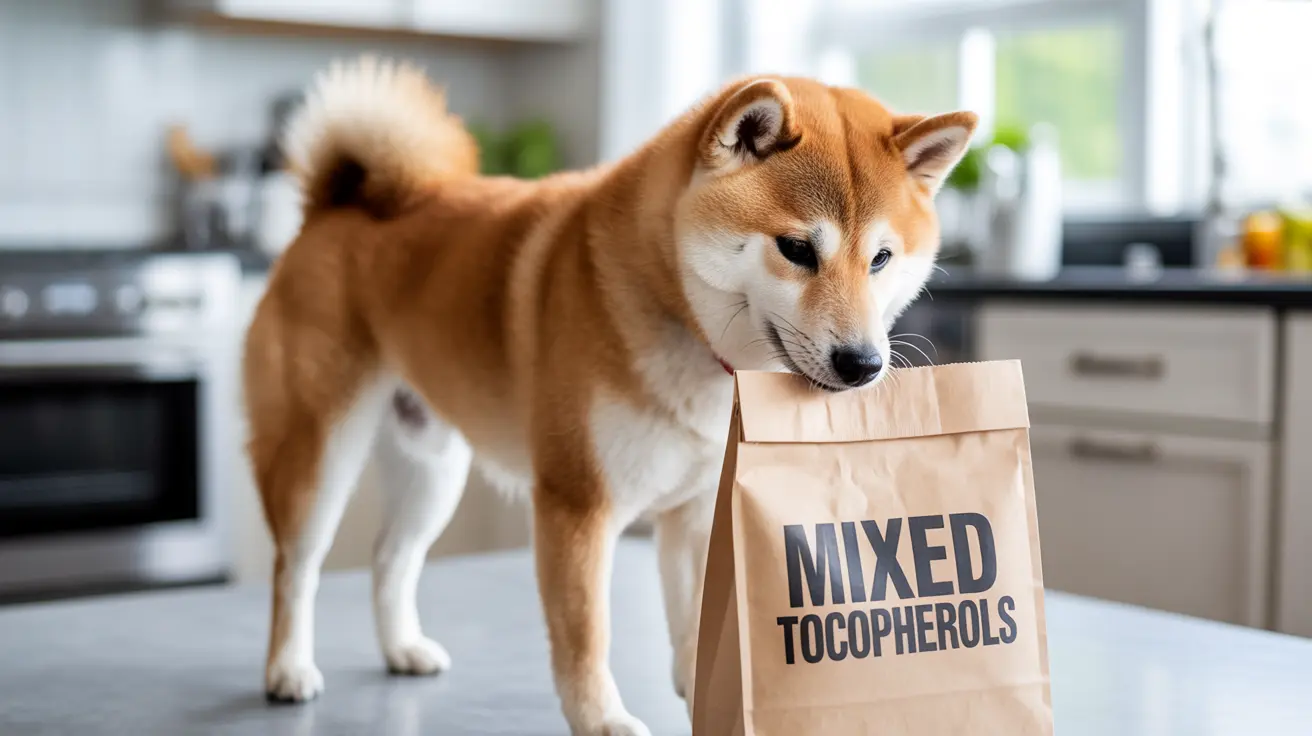If you've been reading your dog's food labels carefully, you've likely encountered the term "tocopherols" or "mixed tocopherols." As a pet parent, it's natural to question the safety and purpose of any ingredient in your dog's food. Let's explore why tocopherols are used in pet food and examine their safety profile for our canine companions.
Understanding Tocopherols in Dog Food
Tocopherols are natural compounds derived from vitamin E that serve as preservatives in dog food. These substances are typically extracted from plant-based sources such as vegetable oils, seeds, and nuts. When you see "mixed tocopherols" on a label, it refers to a combination of different forms of vitamin E (alpha, beta, gamma, and delta tocopherols) working together to preserve the food.
The Safety Profile of Tocopherols for Dogs
Scientific research and veterinary consensus strongly support the safety of tocopherols in dog food. Unlike synthetic preservatives, natural tocopherols are well-tolerated by dogs and provide additional health benefits through their antioxidant properties. The FDA and AAFCO (Association of American Feed Control Officials) recognize tocopherols as safe preservatives for pet food.
Moreover, tocopherols are actually essential nutrients that dogs need for optimal health. They help protect cell membranes, support immune function, and prevent oxidative damage in your dog's body.
Benefits of Natural Tocopherols vs. Synthetic Preservatives
Natural tocopherols offer several advantages over synthetic alternatives:
- They provide nutritional benefits as a form of vitamin E
- Work effectively as antioxidants to prevent food spoilage
- Are gentler on dogs' digestive systems
- Have a proven safety record in both human and pet food
- Contribute to cellular health and immune function
How Tocopherols Function in Dog Food
The primary role of tocopherols in dog food is to prevent fats and oils from becoming rancid through oxidation. This natural preservation process helps maintain the food's nutritional value, taste, and safety throughout its shelf life. While synthetic preservatives might offer longer shelf life, tocopherols provide adequate preservation (typically 12 months) while maintaining the food's natural quality.
What Pet Parents Should Know
When choosing dog food containing tocopherols, consider these key points:
- Look for "mixed tocopherols" or "natural preservatives" on the label
- Check the manufacturing date and expiration date
- Store food properly to maintain the effectiveness of natural preservatives
- Consider consulting with your veterinarian if your dog has specific dietary needs or sensitivities
Frequently Asked Questions
Are mixed tocopherols safe for dogs to eat in their food?
Yes, mixed tocopherols are safe for dogs to consume in their food. They are natural compounds derived from vitamin E and have been extensively studied for safety in pet food applications.
What health benefits do natural tocopherols provide for dogs?
Natural tocopherols provide antioxidant benefits, support immune function, protect cell membranes, and contribute to overall cellular health. As a form of vitamin E, they're essential for your dog's wellbeing.
How can I tell if my dog's food contains natural or synthetic tocopherols?
Natural tocopherols are typically listed as "mixed tocopherols" or "natural preservatives" on the ingredient label. Synthetic versions may be labeled as "dl-alpha tocopherol" or include other artificial preservatives like BHA or BHT.
Could tocopherols in dog food cause allergic reactions or sensitivities?
While allergic reactions to tocopherols are extremely rare, some dogs might be sensitive to certain sources of tocopherols. If you notice any adverse reactions, consult your veterinarian.
Why do dog food manufacturers use mixed tocopherols instead of synthetic preservatives?
Manufacturers choose mixed tocopherols because they're natural, safe, and provide additional nutritional benefits. They're also better aligned with consumer preferences for natural ingredients and have fewer potential health concerns compared to synthetic preservatives.
Conclusion
Tocopherols represent a safe, natural, and beneficial preservative choice in dog food. Not only do they help maintain food freshness, but they also contribute to your dog's overall health through their antioxidant properties and vitamin E content. When selecting dog food, the presence of natural tocopherols can be considered a positive attribute rather than a cause for concern.






